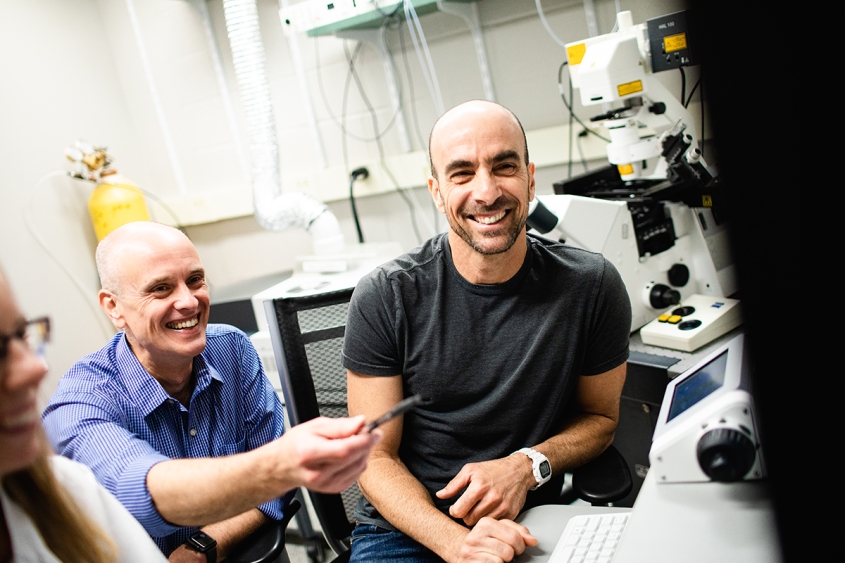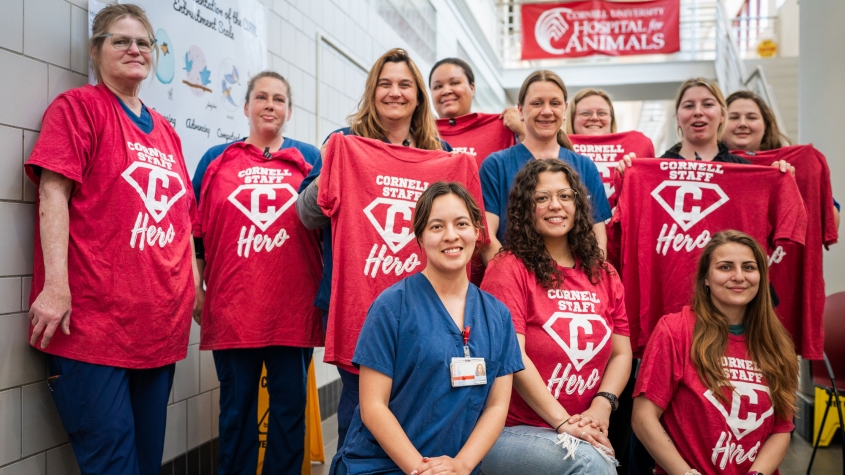Faculty & Staff
Faculty
Recruitment
- Statements of contribution and diversity required from all faculty applicants
- Use of gender and race decoders on job advertisements to eliminate bias towards any one group
- Rigorous and targeted outreach plans for each search to obtain a diverse applicant pool
- Compilation of college “best practices” to share experiences from successful searches
Training & Commitment
- Program for Achieving Career Excellence (PACE) program: Promotes DEI, specifically for early career faculty and underrepresented minorities whose research relates to the NIH/NIAID mission, through networking, professional development and mentoring programs. PACE participants are provided the opportunity to become Visiting Scholars whereby they can partner with and travel to labs outside of Cornell University and learn techniques that will enhance their research.
- Performance Dialogues: Evaluation and reporting on diversity and inclusion activities are included in annual performance discussions
Staff
Cornell Veterinary Medicine Initiatives
- Ensure job postings outside of Cornell’s websites, i.e. industry-specific associations, are run through a gender decoder and include the Cornell EEO statement.
- Require "Contribution to Diversity and Inclusion Statement" for any applicant to supervisory positions.
- Halt search processes in order to conduct community outreach and networking when applicant demographic report demonstrates no diverse candidates.
- Require bias education for all hiring managers and/or individuals involved in meeting candidates as part of an interview process.
- HR and hiring managers identify, analyze and discuss Qualtrics feedback from interview teams and groups to identify biases in feedback statements before a final candidate is identified.
- Require staff to attend at least two university or college DE&I sessions per semester and noted as a goal in performance dialogue.
- Facilitate DE&I dialogues for CVM community to ensure advancement of diversity, equity and inclusion across CVM.
Cornell University Department of Inclusion and Workforce Diversity
Cornell's approach to addressing compliance and diversity issues is to do so holistically. As a result, programming is developed to be as inclusive of all populations as possible and to include addressing career/life issues. The Department of Inclusion and Workforce Diversity leads the university’s Title IX efforts, supports disability access efforts for the university, and implements programming to address the career/life challenges of students, faculty and staff.
Cornell University Diversity Council Resources
Information about Cornell’s diversity recruitment and retention programs and resources, including training and networking opportunities to support communities of color, disabilities, LGBT, military veterans, women, and religions.
Cornell University Colleague Network Groups
Cornell’s Colleague Network Groups are university-sponsored employee resource groups for diverse populations, including racial/ethnic minorities, differently abled, young professionals, LGBT, and veterans, and allies of those groups. The groups provide programs that enhance the university culture by fully engaging all our faculty and staff. Each group advocates for a specific demographic within the Cornell faculty and staff community—to aid in recruitment and retention efforts, as well as improve the climate for the community as a whole.




